To many, it’s hard to imagine being unable to walk down the street and go to a local grocery store or stop by and say hi to a local street vendor who’s become an integral part of your daily routine. But for many residents in the Haitian capital of Port-au-Prince, that’s become an unfortunate reality.
Due to ongoing gang violence, many fear leaving their homes. This makes it impossible for many residents to gather necessary supplies or food. According to a May report from the World Food Program, 65% of households in Port-au-Prince face insufficient access to food.
For some, the situation became so dire that they fled their homes, leaving everything behind to find safety. Now, far away from home, many find themselves in a similarly untenable situation. Without work or sometimes even a place to stay, thousands are left without enough food to survive.
CORE partnered with World Central Kitchen (WCK) to provide food kits to families effected by the ongoing food crisis in Haiti. Each kit included enough food for a family of five to have three meals daily for a month. These kits contained nutrient-dense and locally sourced foods like rice, beans, peanut butter, and cooking oils.
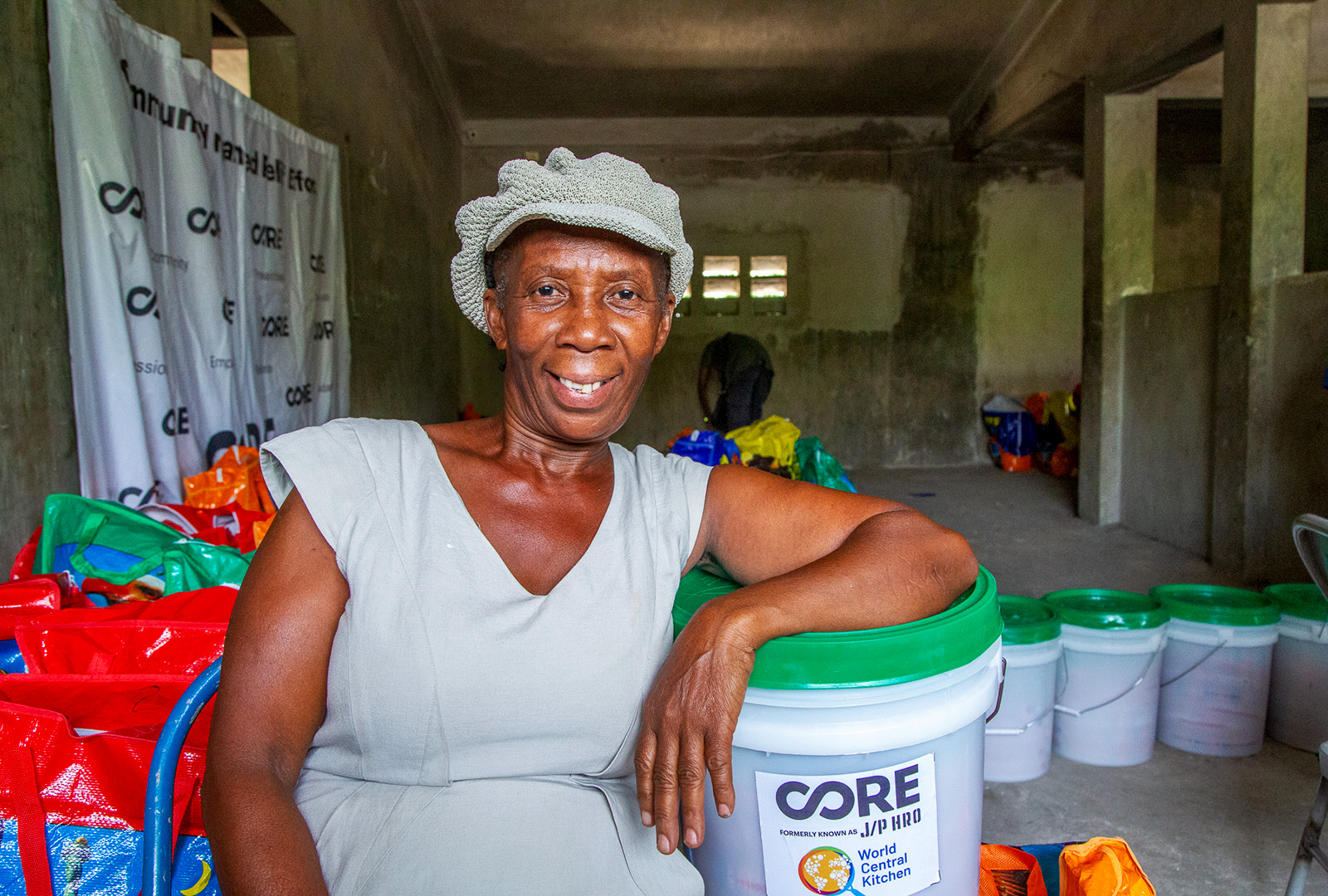
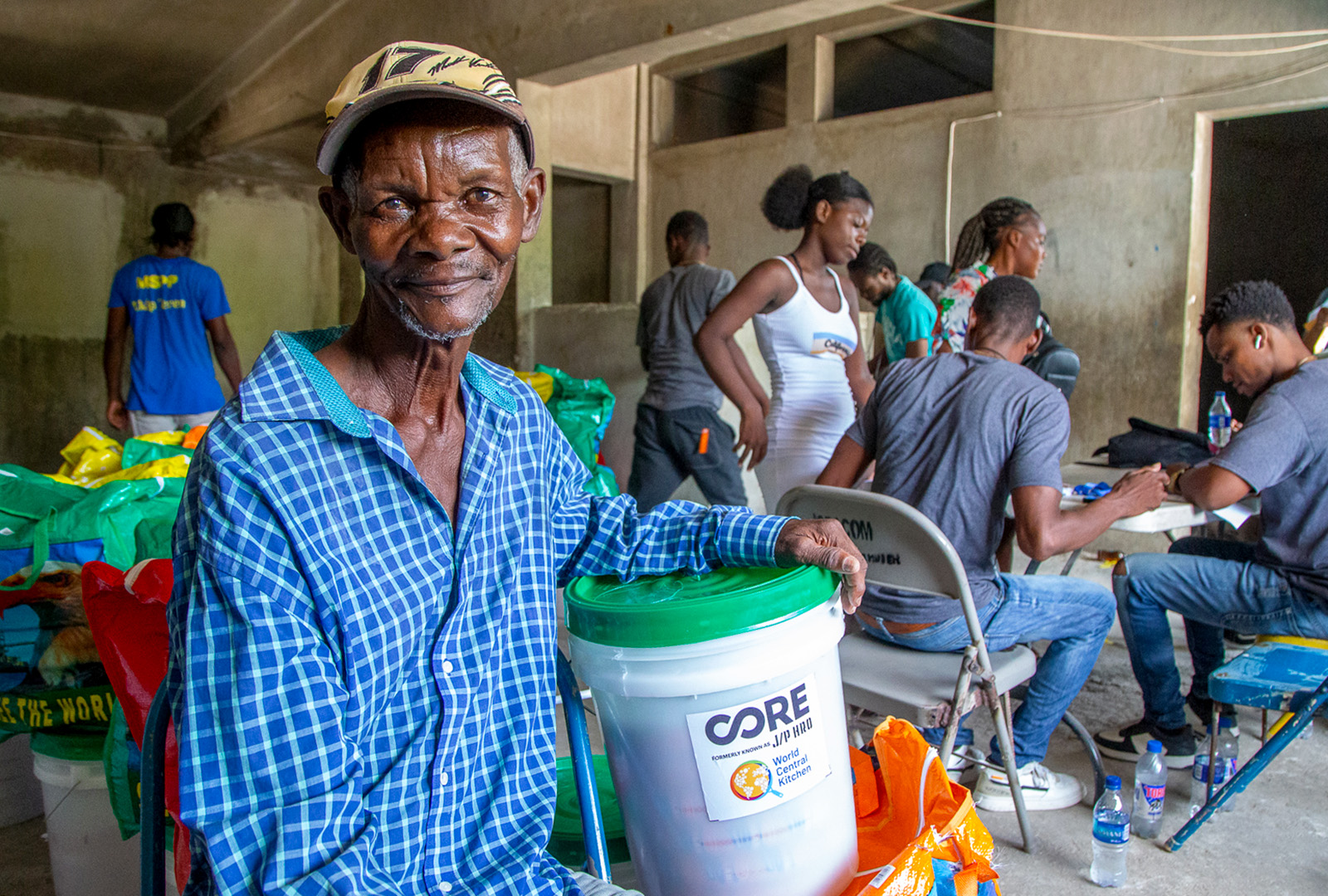
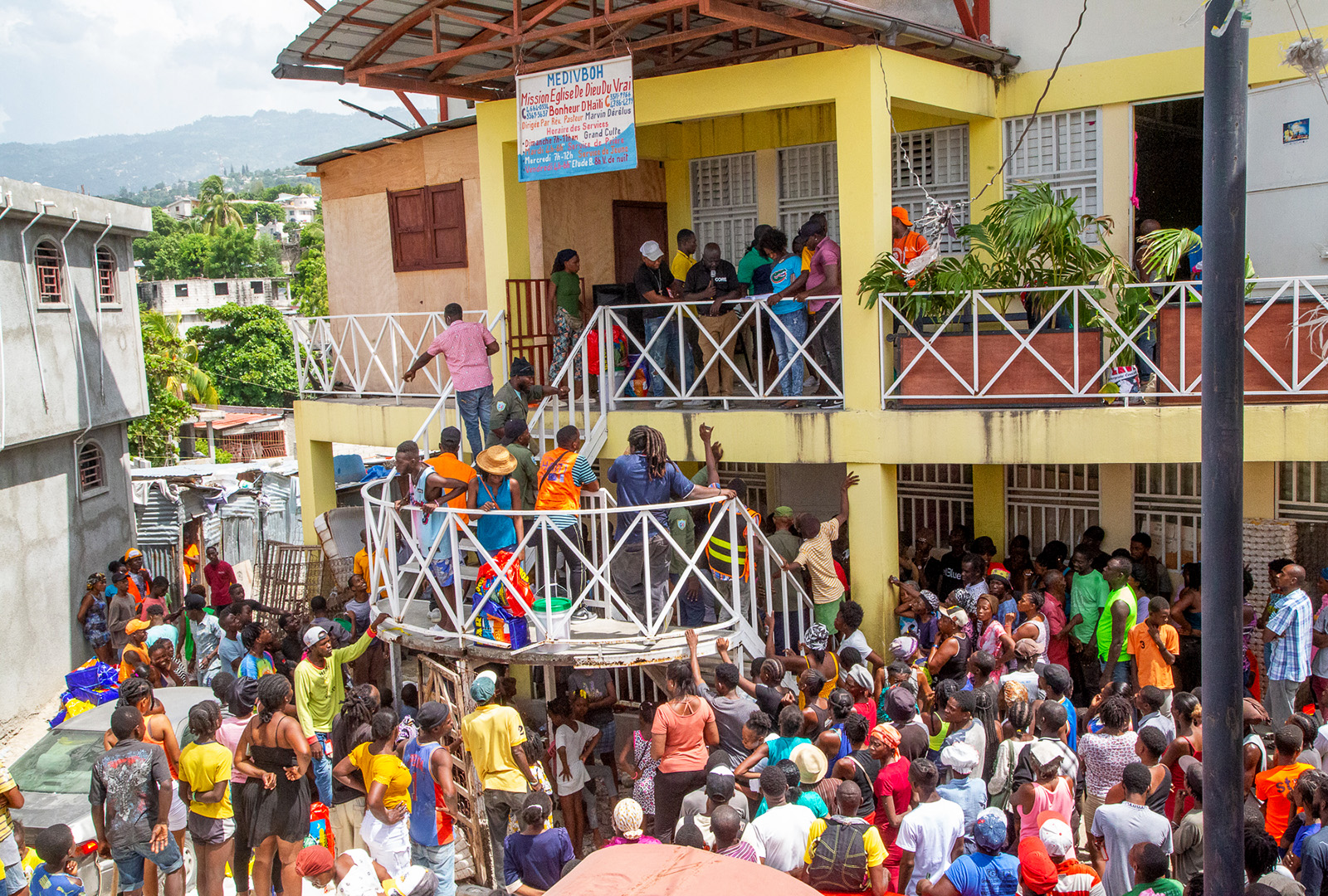
This summer, CORE and WCK provided 1.2 million meals to Haitian families. Both organizations carefully planned each distribution with local community leaders to ensure that individuals wouldn’t face harm or fear violence.
Our local team worked tirelessly to safely reach the most vulnerable people, including those with physical disabilities, pregnant women and children, elderly folks, and displaced families staying in temporary camps.
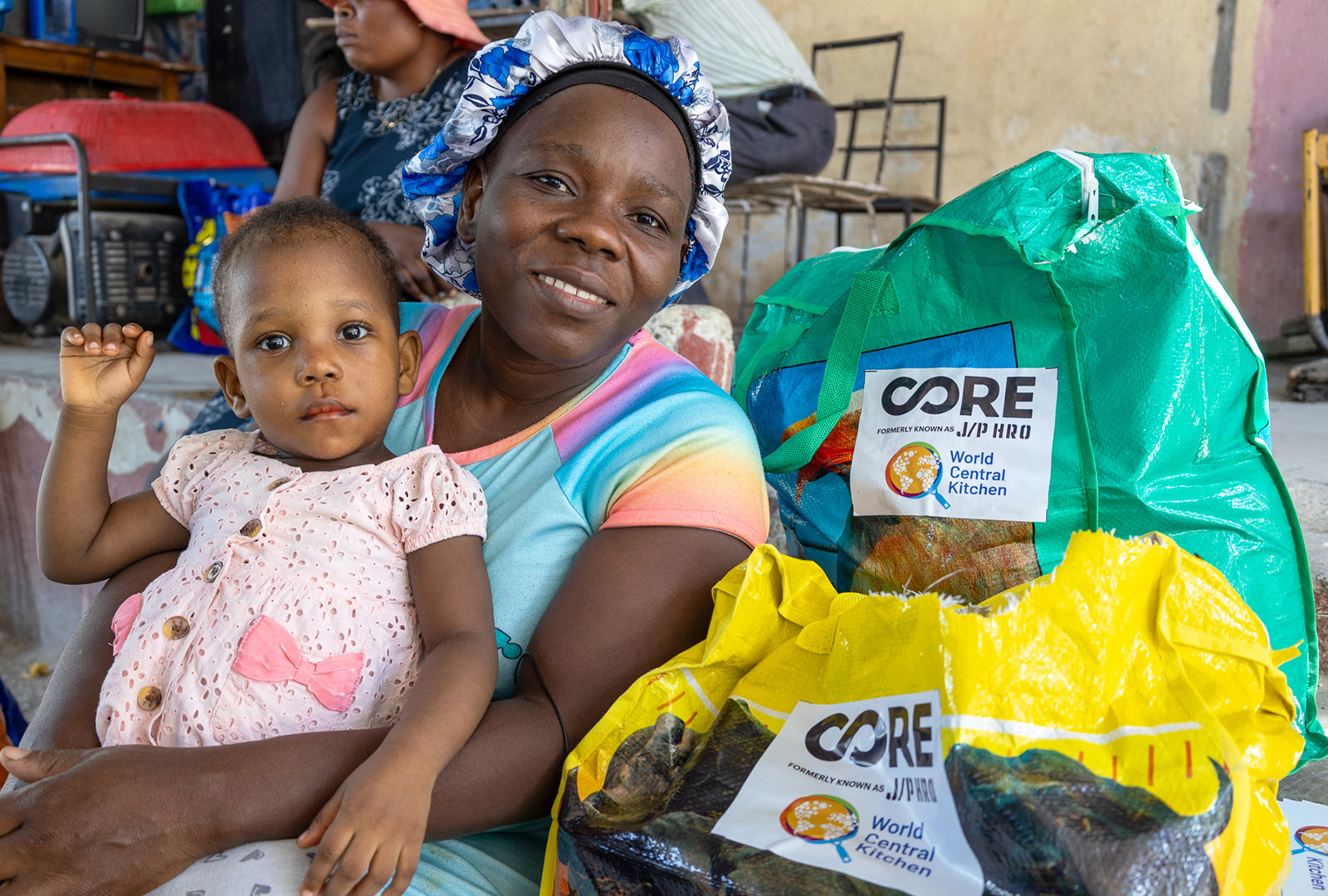
Ketlie & her daughter, after receiving their food kits from CORE & WCK. (CORE photo by Garry Calixte)
Ketlie, a mother of two and a business owner in Canaan on the outskirts of Port-au-Prince, saw increased gang violence and worsening problems all around her. Gang members, seemingly at random, would knock on front doors, demanding money.
If families couldn’t pay, these assailants broke into homes, stole what they wanted, and burned what they left behind. Worse still was the violence; people were injured, women were the victims of sexual violence, and gang members killed others.
Ketlie knew she had to leave. She didn’t have enough money to pay off the gangs if they ever came to her door and feared for her eldest daughter’s safety.
So, she fled to Delmas, first staying with her family before finding shelter at a temporary camp for internally displaced people (IDPs) inside of a church, where she waited for the situation to improve.
Even there, there were constant reminders of the violence, like the sounds of gunshots that echoed from just outside of the camp. And while they had a place to stay, Ketlie struggled to stretch what little money she had to buy food, diapers, soap, and other basic needs for her family.
So, when CORE and WCK arrived to distribute food kits, it came as a relief. For a month, she could focus her time and energy somewhere other than tracking down what she and her two children needed to eat that night.
She said, “So, what you give us today means a lot. In this present time, the country is locked down, no
activity, no work, everything is locked…What they give to us, even if it lasts for 15 days, we can take a breath.”
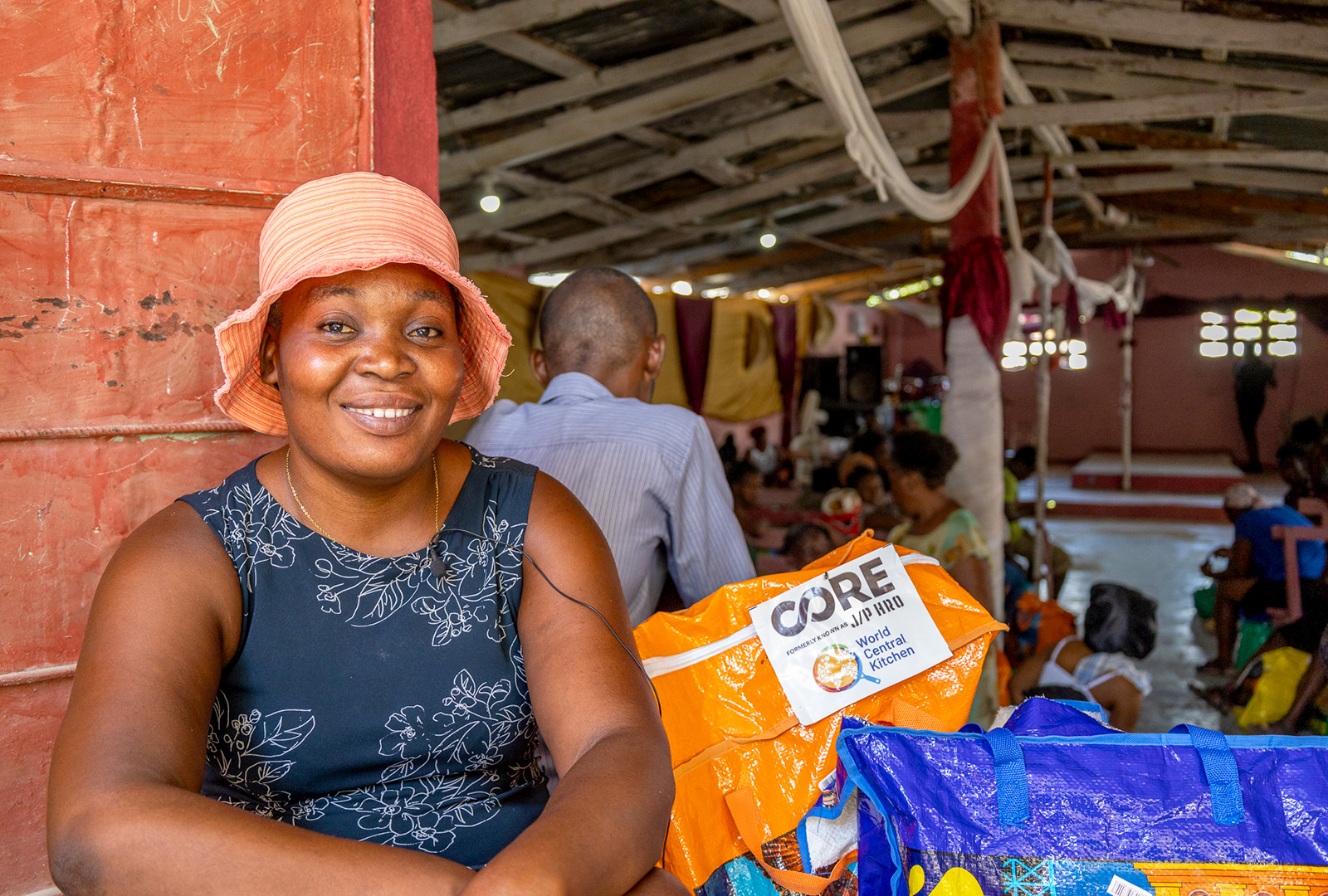
Sévila after receiving her food kit from CORE & WCK. (CORE photo by Garry Calixte)
Like Ketlie, Sévila saw the violence escalating around her in the southern Haiti town of Corail. Her family constantly heard gunshots, forcing them to hide under their bed. As a pregnant mother with two other children, she knew she couldn’t stay.
Eventually, she and her children made it to the camp in Delmas. There, they found safety but still struggled each day for food.
CORE and WCK provided Sévila with a much-needed food kit, which gave her and her three children stability during a very turbulent time.
She said, “Now I have spaghetti, rice, peas, and corn…No more hunger for me now. Thank you very much! I want to say thank you so much.”
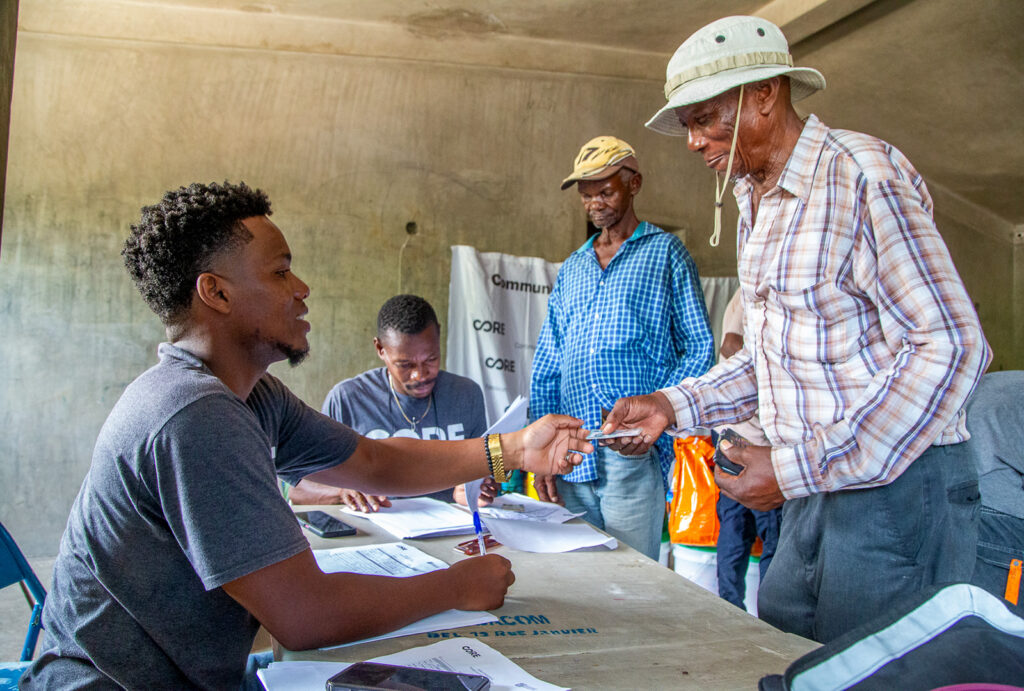
Members of CORE’s team, met with locals (CORE photo by Garry Calixte)
CORE is committed to helping the people of Haiti through this turbulent time and beyond. We recognize that access to food is a fundamental human right, and we will continue supporting the Haitian people.
CORE has partnered with Acceso and received grants from the Caribbean Biodiversity Fund to forward long-term sustainability projects that support local ecosystems and the fishers and farmers that tend the land and provide for the community.
If you’d like to learn more about CORE’s work in Haiti, please visit our landing page.